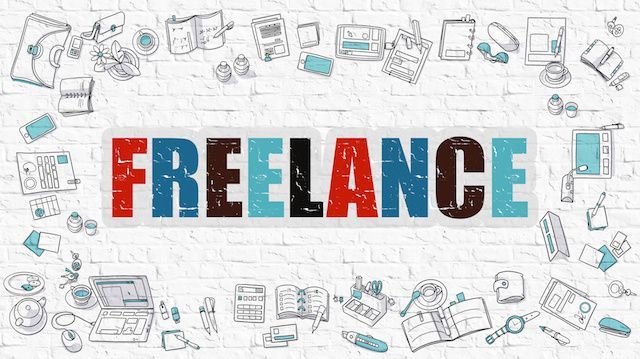
The workforce has changed; it doesn’t take an extensive study to prove it. People value a work-life balance, and many folks enjoy the freedom of working remotely. In fact, the workforce has shifted so significantly that all of the net U.S. job growth since 2005 has been in contract or freelance work, according to Harvard economist Lawrence Katz.
Together with Princeton economist Alan Krueger, Katz found that employment in all jobs increased by 9.1 million between February 2005 and November 2015. The interesting part of this 6.5 percent increase in employment is that people working in “alternative” work situations — temp jobs, contract work, freelance gigs — climbed from 10.1 percent in 2005 to 15.8 percent in 2015.
The findings reveal that “as of late 2015, we had not yet quite fully recovered from the huge loss of traditional jobs from the Great Recession” and even more people work in freelance or contracted jobs. This isn’t surprising news, though. In May 2015, the Bureau of Labor Statistics found that 15.5 million people were self-employed in one form or another. In addition, The Intuit 2020 Report estimates that more than 40 percent of the workforce will be independent, “alternative” workers: contractors, temporary employees or freelancers by 2020.
It seems that many people like the new way of things and technology is keeping up with workers’ preferences to remain contractors. We can work from just about any location in the world, sometimes right from our phones these days. Online marketplaces such as Contently, Creative Circle, Fiverr, Upwork, TaskRabbit and others have sprung up to help facilitate connections between freelance workers and corporations.
Contractors are very appealing to businesses, too. Small organizations can take advantage of talented workers when they need them without keeping them on the payroll during slow periods. A contract arrangement is also a great way for both parties — the company and the freelancer — to find out if the partnership is a good match before the company extends a full-time job offer. It’s not uncommon to find job postings online for contract-to-hire positions; it just seems to be the way of the world now.
Whether you’re a freelancer or you think you might like to take up a side gig, Entrepreneur has come up with a list of the best freelancer websites, written by a freelancer:
- Upwork: This site offers a wealth of short and long-term projects from entry to expert-level.
- Toptal: Higher-paying gigs for experienced freelancers with an established portfolio. Newbies need not apply.
- Freelancer: Have a competitive spirit? This site allows you to participate in contests against other contract workers to prove your skills.
- Craigslist: Yes, believe it or not, Craigslist is a hidden treasure trove of freelance gigs.
- Guru: If a daily job-matching feature more your speed, check out Guru.
- 99designs: Designers compete in contests with one another to secure clients via this site.
- PeoplePerHour: Web developers, designers and SEO experts flock to the platform, which is focused on web projects.
- Freelance Writing Gigs: Are you a freelance writer, blogger or editor? Try this one out. Nice gigs for decent pay are a regular occurrence here.
- Demand Media: A variety of creatives work directly with Demand Media to craft visual and written content for clients and the pay is pretty good too.
- College Recruiter: Freelance and part-time work take center stage on this site, developed specifically for current college students and recent grads.
- GetACoder: This site of the best places to find freelance gigs if you’re a programmer or web designer.
- iFreelance: Like most of these other sites, iFreelance offers gigs for developers, writers, editors, and more, but it also features freelance marketers. Bonus: you keep 100 percent of your earnings.
- Project4hire: Search for projects by category to narrow your options down to something that really works for you.
- SimplyHired: Location-based searches and ample job categories make SimplyHired a valuable resource.
Despite the fact that there are still many traditional jobs out there, the shift towards freelance workers will probably continue to change how we all work. It will be interesting to see if the work-life balance and freedom that contractors regularly enjoy will inspire traditional workers to seek out new opportunities, or if companies shift how they do business in the coming years.
Because, whether you like it or not, it looks like freelancing is here to stay in our economy.
—Megan Winkler
Megan Winkler is an author, historian, Neurosculpting® meditation coach, certified nutritional consultant and DIY diva. When she’s not writing or teaching a class, Megan can be found in the water, on a yoga mat, learning a new instrument or singing karaoke. Her passion for a healthy mind-body-spirit relationship motivates her to explore all the natural world has to offer.
Sources:
http://fusion.net/story/285543/krueger-katz-gig-economy-forthcoming-paper
http://http-download.intuit.com/http.intuit/CMO/intuit/futureofsmallbusiness/intuit_2020_report.pdf
http://www.fastcompany.com/3049532/the-future-of-work/heres-why-the-freelancer-economy-is-on-the-rise
https://www.entrepreneur.com/article/245953

